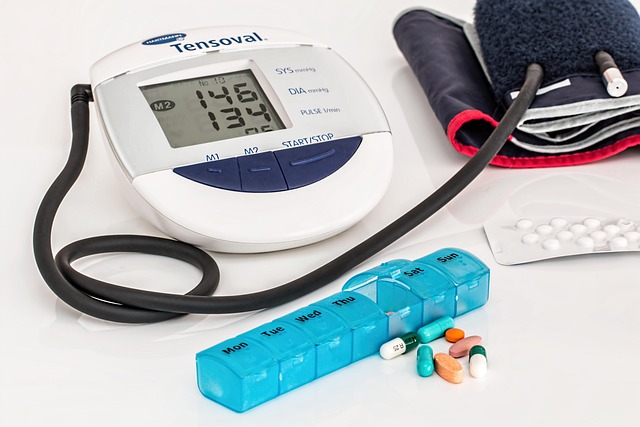Neuropathy Clinical Trials: A Comprehensive Guide to Participation
Neuropathy clinical trials are essential for advancing new treatments and improving outcomes for people affected by neuropathy. Understanding trial eligibility, the risks and potential benefits, and how to identify trustworthy studies empowers you to make informed decisions about taking part in research.

What are Neuropathy Clinical Trials?
Neuropathy clinical trials are carefully controlled research studies that test new treatments for various forms of nerve damage, including diabetic neuropathy, chemotherapy-induced peripheral neuropathy, and idiopathic neuropathy. These trials follow strict protocols established by the Food and Drug Administration (FDA) and are conducted in phases. Phase I trials typically test safety and dosage in small groups, while Phase II and III trials evaluate effectiveness compared to existing treatments in larger populations.
Researchers use these studies to determine whether new medications, medical devices, or therapeutic approaches are safe and effective. Common trial types include studies testing novel pain medications, nerve stimulation devices, topical treatments, and combination therapies. Each trial has specific inclusion and exclusion criteria based on factors like neuropathy type, severity, previous treatments, and overall health status.
Why Participate in Neuropathy Clinical Trials?
Participation in neuropathy clinical trials offers several compelling reasons for patients seeking better treatment options. Many participants gain access to promising new therapies years before they become commercially available. This early access can be particularly valuable for individuals who have not responded well to standard treatments or have exhausted conventional options.
Clinical trials also provide exceptional medical care and monitoring. Participants receive regular assessments from specialized medical teams, detailed health screenings, and comprehensive follow-up care throughout the study period. This level of attention often exceeds what patients receive in routine clinical practice, potentially leading to better overall health management.
Additionally, many participants find meaning in contributing to medical research that could help millions of others with similar conditions. The data collected from these trials directly influences FDA approval decisions and treatment guidelines that shape neuropathy care for future generations.
Benefits for Study Participants
Study participants often experience numerous tangible benefits beyond access to experimental treatments. Most clinical trials provide all study-related medical care at no cost to participants, including medications, diagnostic tests, and physician visits. This can result in significant savings, particularly for individuals with limited insurance coverage or high deductibles.
Participants also receive more frequent and thorough medical monitoring than typical clinical care. Regular assessments help identify changes in condition early, allowing for prompt adjustments to treatment plans. Many trials include quality-of-life measurements and comprehensive health evaluations that provide valuable insights into overall well-being.
The structured nature of clinical trials often leads to improved medication adherence and lifestyle management. Regular check-ins with research staff provide ongoing support and education, helping participants better understand their condition and treatment options.
How to Find and Apply for Neuropathy Clinical Trials
Finding appropriate neuropathy clinical trials requires systematic research and patience. ClinicalTrials.gov, maintained by the National Institutes of Health, serves as the primary database for clinical trials in the United States. Users can search by condition, location, and trial phase to identify relevant studies in their area.
Academic medical centers and specialized neurology clinics often conduct neuropathy research. Contacting local universities with medical schools or comprehensive neuropathy treatment centers can provide information about ongoing studies. Many healthcare providers maintain relationships with research institutions and can provide referrals to appropriate trials.
Professional organizations like the American Diabetes Association and the Foundation for Peripheral Neuropathy maintain resources about current research opportunities. These organizations often share information about trials seeking participants through their websites and newsletters.
When applying for trials, participants should prepare comprehensive medical records, including diagnosis details, treatment history, and current medications. Research coordinators will review eligibility criteria carefully and may require additional testing or evaluations before enrollment.
What to Expect During Participation
Clinical trial participation involves a structured process with multiple phases and regular commitments. Initial screening visits determine eligibility and establish baseline measurements for comparison throughout the study. These visits often include comprehensive medical histories, physical examinations, blood tests, and nerve function assessments.
Once enrolled, participants follow specific protocols that may include taking study medications, using medical devices, or attending therapy sessions. Regular follow-up visits monitor progress, assess side effects, and collect data on treatment effectiveness. These appointments are typically more frequent than routine medical care, especially during early trial phases.
Participants receive detailed informed consent documents explaining potential risks, benefits, and study requirements. Research teams provide ongoing communication about study progress and any new safety information that emerges. Most trials include provisions for participants to withdraw at any time without affecting their regular medical care.
Documentation requirements are typically extensive, with participants often keeping daily symptom diaries or completing regular questionnaires about pain levels, function, and quality of life. Research staff provide training and support to ensure accurate data collection throughout the study period.
Clinical trials represent a valuable opportunity for neuropathy patients to access innovative treatments while contributing to medical advancement. The combination of potential therapeutic benefits, comprehensive medical care, and meaningful participation in research makes clinical trials an important consideration for many individuals managing neuropathy. Success in trial participation requires careful evaluation of personal circumstances, thorough communication with research teams, and commitment to study protocols.
This article is for informational purposes only and should not be considered medical advice. Please consult a qualified healthcare professional for personalized guidance and treatment.




